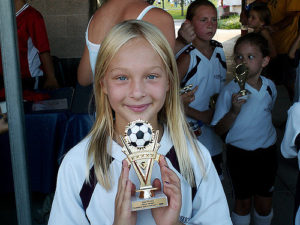
Last time, I mentioned the idea of “small wins.” It’s a common concept in change management discussions and a fairly self-evident one. Still, I’ve been struck by the number of community engagement professionals leading organizational transformation to community engagement who have cited it as a critical factor in the process. These mini pilot projects developed jointly with new community partners lay the groundwork for bigger things, establish trust and credibility, and, mentioned as often as anything else, excite staff and board members of the arts organization who did not participate in producing them. Seeing a room full of community members enthused about something that the arts organization has helped put together makes community engagement real and goes a long way to demonstrating why it is so important. Another commonly cited benefit is the buzz they can create through media or simple word of mouth that piques the curiosity of funders.
I am indebted to Jason Holland, VP for Community Engagement at the Segerstrom Center for the Arts in Costa Mesa, CA and a new ArtsEngaged CET Trainer, for reminding me of this. He has generously offered the following as examples and inspiration:
I found it was important when launching pilot community engagement programs to get some ‘quick wins’ early on. I know this may sound antithetical to the process that is so important in sustainable, quality community engagement, but when there are detractors around you who may be looking for this work to fail, it’s important to deliver quick wins to begin to paint a picture of what the future of our work in the community might look like. Photos and video from these quick wins are critical. Combined, these assets help the drum beat begin. Now maybe we can wrap our brains about who this mysterious ‘community’ is and what working with them might FEEL like.
Small wins are not too dissimilar from quick wins but they can happen later in the journey. I have recently had a small win while working with a community organization with whom I needed to build trust and invest time. In our first year together they weren’t quite ready to activate any program or events together. No problem! But this year I just kept checking back and making sure they knew we were here and ready to work when they needed us. Low and behold, they came knocking on our door with an idea they wanted our help with. We were happy to roll up our sleeves and pitch in. Our pilot effort was small – a “one off” – but critical in demonstrating that we were there to support their goals and that we would uphold our end of the work. After that small win with them, ideas and excitement began swirling around the next steps together. I can see that we will be doing more together later this year and that was only possible after that small win gave us all a shared success on which to build!
By definition, small wins (and quick wins) are inexpensive and low risk. They won’t all be wildly successful but even the ones that are not provide experience in working with communities, lessons about what worked and what didn’t, and put the organization on record as serious about working with communities.
Engage!
Doug
Photo: ![]()
![]() Some rights reserved by Banana Custard
Some rights reserved by Banana Custard
